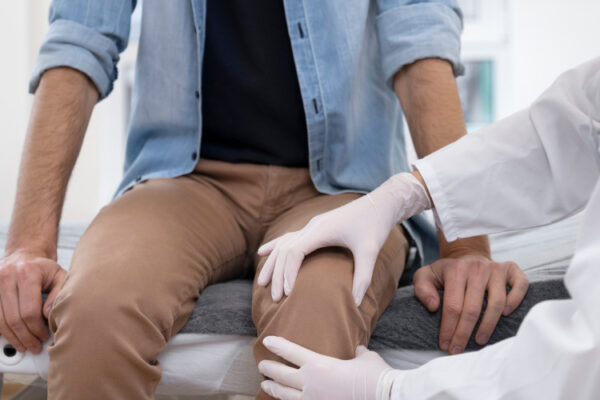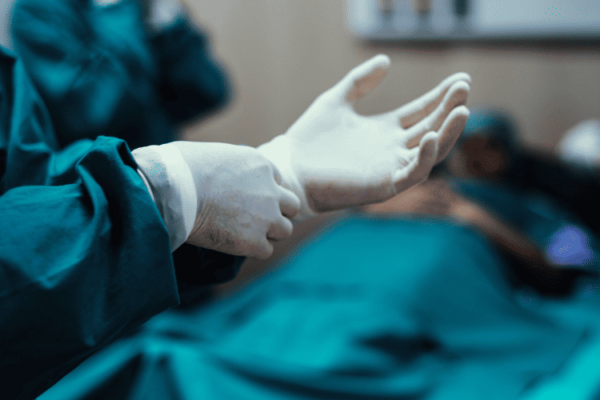
17 Dec Uterine Fibroids
Uterine Fibroids
By Island Hospital | Dec 17, 2018 5:57:45 PM
Uterine fibroids are non-cancerous growths of the uterus that often appear during childbearing years. Also called leiomyomas (lie-o-my-O-muhs) or myomas, uterine fibroids aren’t associated with an increased risk of uterine cancer and almost never develop into cancer.
Fibroids range in size from seedlings, undetectable by the human eye, to bulky masses that can distort and enlarge the uterus. You can have a single fibroid or multiple ones. In extreme cases, multiple fibroids can expand the uterus so much that it reaches the rib cage.
Many women have uterine fibroids sometime during their lives. But most women don’t know they have uterine fibroids because they often cause no symptoms. It may be discovered incidentally during a pelvic exam or prenatal ultrasound.
Your symptoms will depend on the location and size of the tumor(s) and how many tumors you have. If your tumor is very small, or if you are going through menopause, you may not have any symptoms. Fibroids may shrink during and after menopause. Symptoms of fibroids may include:
- Heavy bleeding – between or during your periods, that includes blood clots
- Pain – in the pelvis and/or lower back
- Pain – during intercourse
- Menstrual cramping – increased
- Menstruation – longer than usual
- Urination – increased
- Pressure/fullness in your lower abdomen
- Swelling/enlargement of the abdomen
There’s no single best approach to uterine fibroid treatment.
- Watchful waiting
No signs or symptoms, or only mildly annoying signs and symptoms that are bearable. If that’s the case, watchful waiting could be the better option.
- Fibroids aren’t cancerous
They rarely interfere with pregnancy. They usually grow slowly — or not at all — and tend to shrink after menopause, when levels of reproductive hormones drop.
- Medications
Medications for uterine fibroids target hormones that regulate your menstrual cycle, treating symptoms such as heavy menstrual bleeding and pelvic pressure. They don’t eliminate fibroids, but may shrink them.
- Medications include:
- Gonadotropin: releasing hormone (Gn-RH) agonists
- Medications called Gn-RH agonists treat fibroids by blocking the production of estrogen and progesterone, putting you into a temporary postmenopausal state. As a result, menstruation stops, fibroids shrink and anemia often improves. Usually temporary relief, and often used for pre-operative shrinking.
- Progestin: releasing intrauterine device (IUD)
- A progestin-releasing IUD can relieve heavy bleeding caused by fibroids. A progestin-releasing IUD provides symptom relief only and doesn’t shrink fibroids or make them disappear. It also prevents pregnancy.
- Tranexamic acid: This non-hormonal medication is taken to ease heavy menstrual periods. It’s taken only on heavy bleeding days.
- Other medications: For example, oral contraceptives or progestins can help control menstrual bleeding, but they don’t reduce fibroid size.
- Esmya: Oral medication used to shrink fibroids
- will need at least two cycles of three months each. First oral medication primarily for the treatment of fibroids.
- Traditional surgical procedures
Options for traditional surgical procedures include: - Abdominal myomectomy
If you have multiple fibroids, very large fibroids or very deep fibroids, your doctor may use an open abdominal surgical procedure to remove the fibroids. Many women who are told that hysterectomy is their only option can have an abdominal myomectomy instead. However, scarring after surgery can affect future fertility.- Hysterectomy
This surgery (the removal of the uterus) remains the only proven permanent solution for uterine fibroids. But hysterectomy is a major surgery.
- Hysterectomy
- Gonadotropin: releasing hormone (Gn-RH) agonists
There is no known treatment that prevents uterine fibroids. Getting regular exercise may help.
- Preventing fibroids from coming back after treatment
- Being on the oral contraceptive pill long term.
- If left untreated, fibroids can continue to grow, both in size and number.
- The symptoms may become worse.
- Heavy bleeding will become heavier and it may be accompanied by severe cramping.
- Pain will increase.
- As the fibroids grow the abdomen can swell.
- They can put additional pressure on the bladder resulting in incontinence or frequent urination.







![[IH 2025] #33 ECG Test_Image 1 medical-machine-ecg-test](https://islandhospital.com/wp-content/uploads/2025/07/IH-2025-33-ECG-Test_Image-1-600x400.png)
